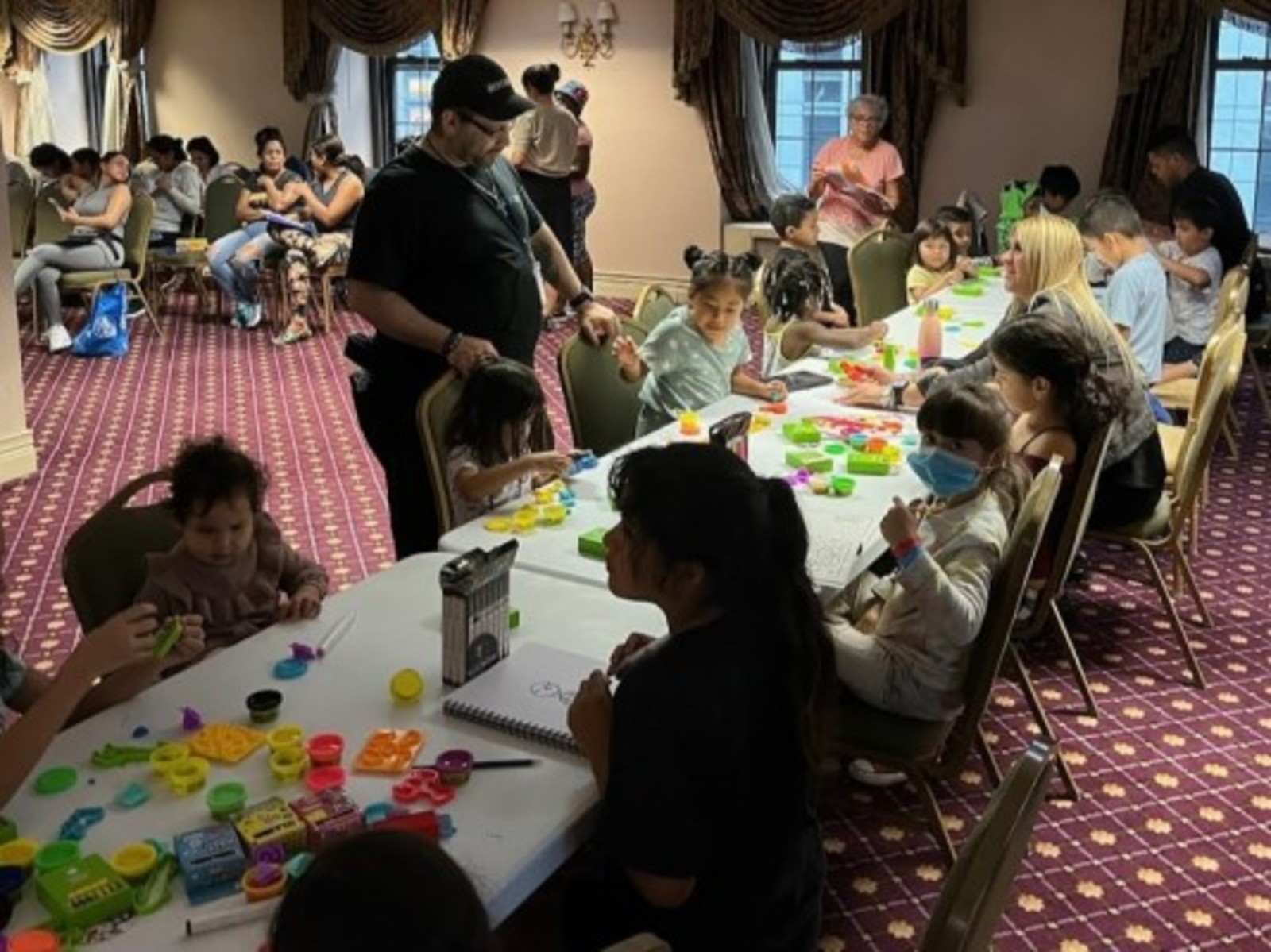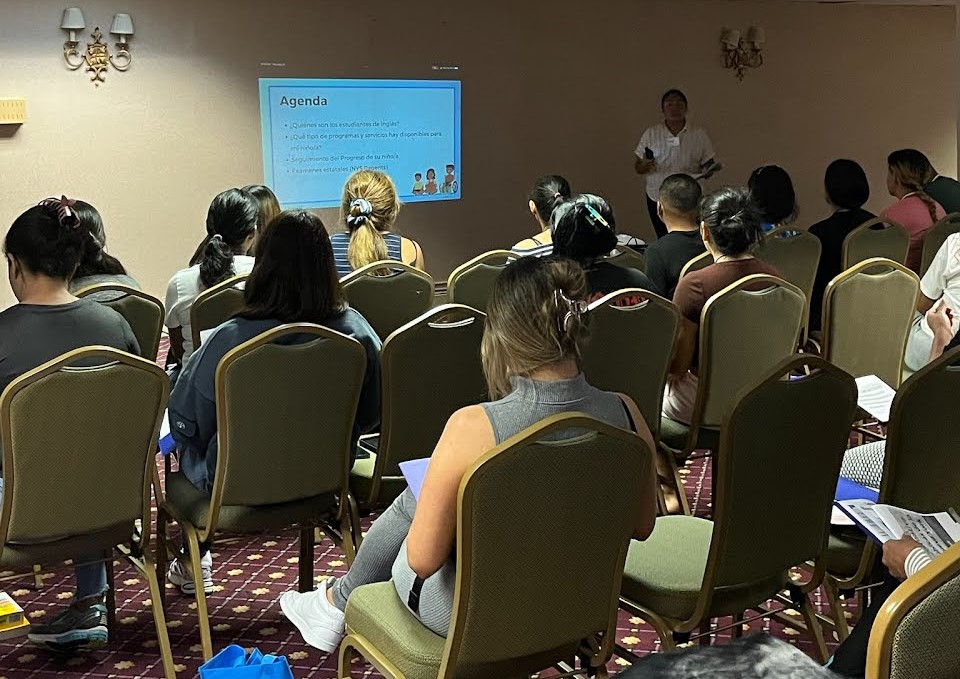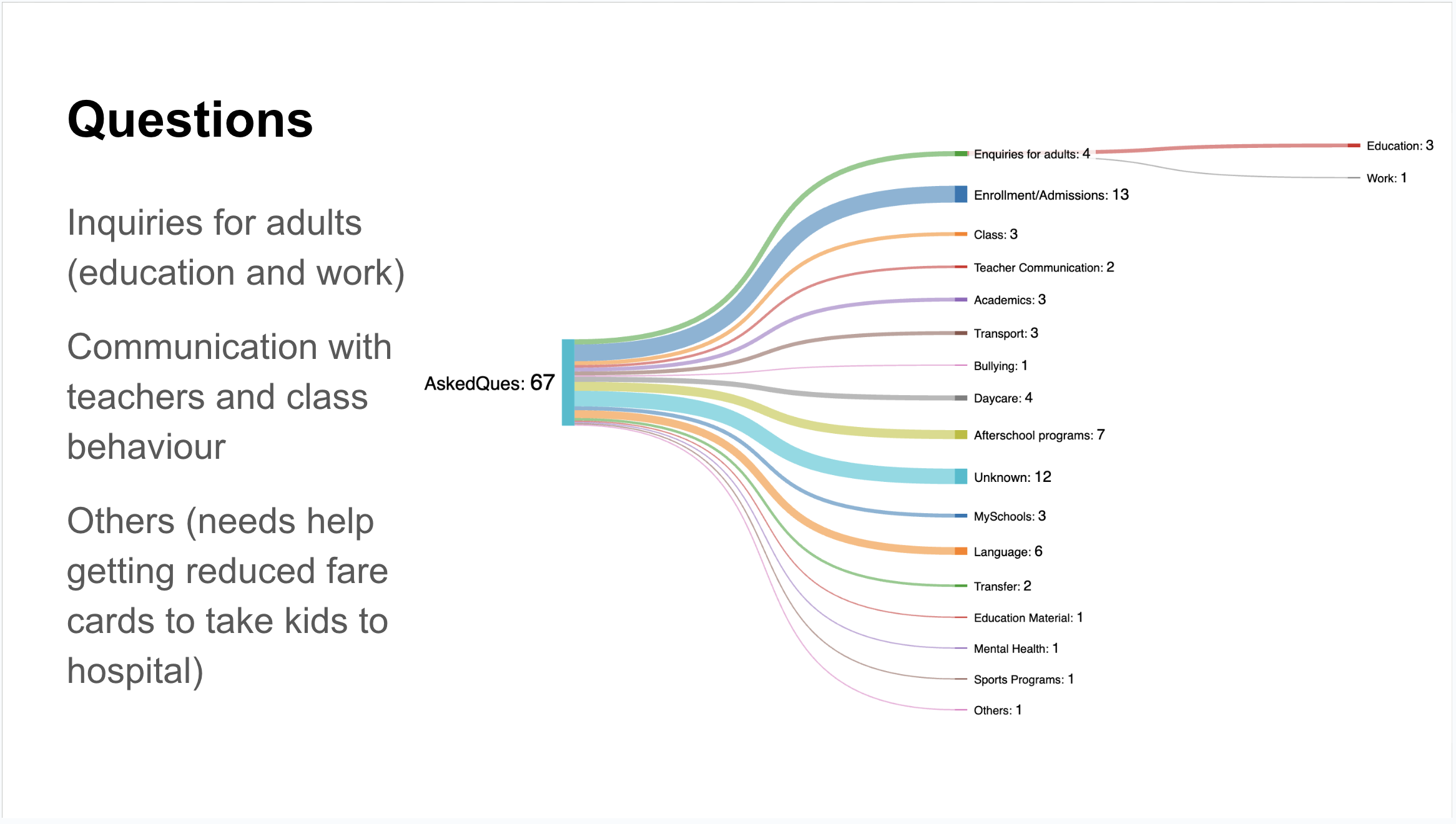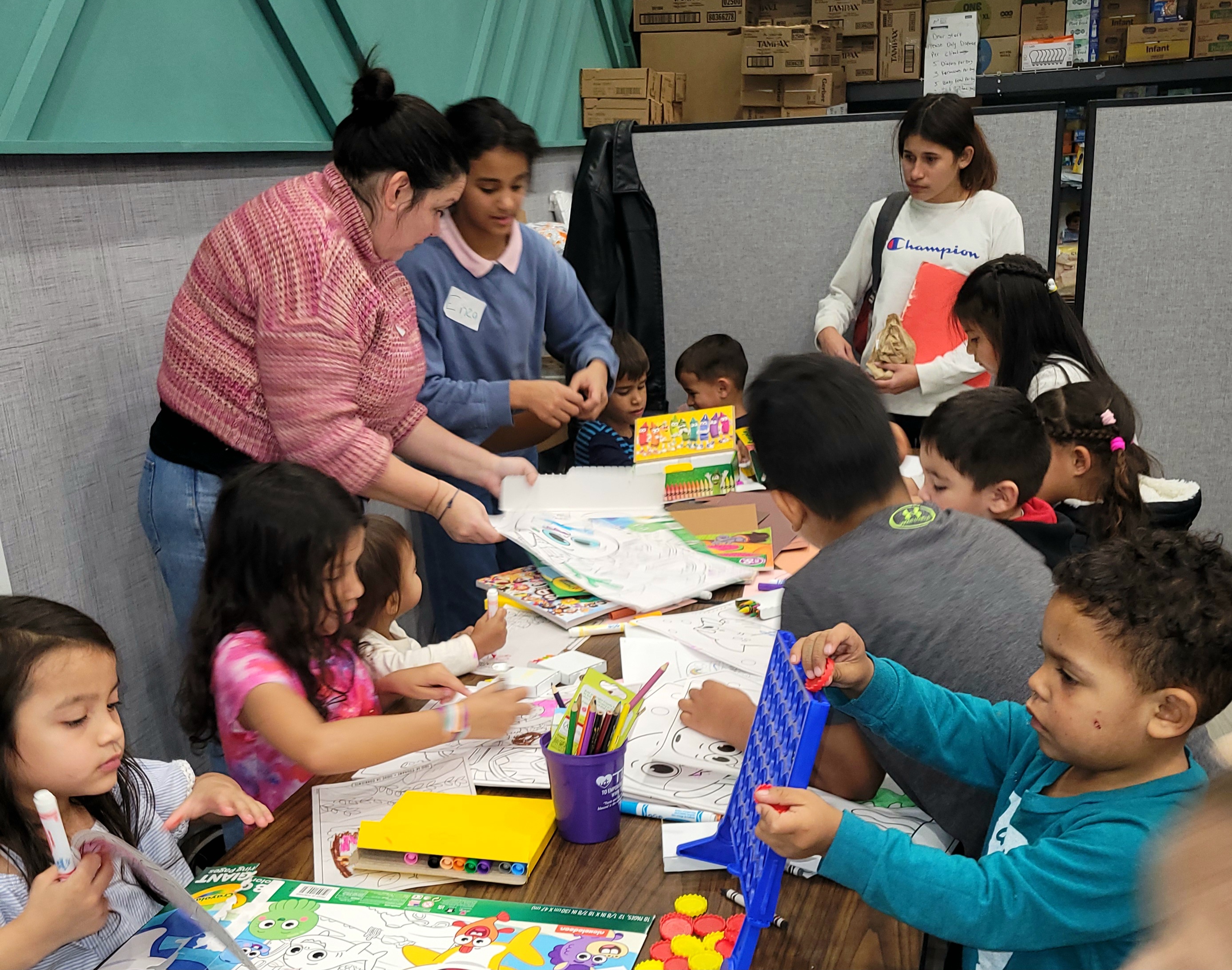InsideSchools Listens: Migrant Parents Tell Us What They Need Most

InsideSchools staff and volunteers entertain children while their parents learn about how to get their kids enrolled in NYC schools. Image Credit: InsideSchools
“What’s a MySchools account?”
“How can I speak with my child’s teacher who doesn’t speak any Spanish?
“Do my kids get a school bus?”
“I used to be a mechanic in my home country, how can I get a job doing that here?”
“Will it snow this year?”
These were some of the questions asylum-seeking families posed to InsideSchools during workshops held this fall at New York City’s Department of Homeless Services (DHS) shelters in the Bronx, Brooklyn, Manhattan, and Queens.
With the help of volunteers, InsideSchools Director, Natasha Quiroga and Spanish Project Lead, Gigi Hernandez presented to families about enrolling in NYC schools, adult education, and other helpful services and resources.

Photo: Gigi Hernandez presents to parents at the Roosevelt Hotel shelter for newcomer families in Manhattan.
After the main presentation, families met one-on-one with InsideSchools staff and volunteers. These conversations shed light on some of the day-to-day challenges newcomers face: finding a school near a relative or an accessible school building for a child in a wheelchair, where to get help acclimating to life in a new city, an even how to dress and what to do when it snows.
I spoke with Natasha and Gigi to gain insight into the range of circumstances migrant families dealt with this school year.
So families showed up with a lot of questions. What were the most common things they asked about?
Gigi: If the families have younger children, and a lot of them who came to the workshops did, it's always childcare issues and sometimes even a need for essentials: diapers or newborn clothes, even blankets. Some parents are preparing for the different seasons. There were some parents who asked if there’s a chance it's going to snow this year because they want to see snow, but also because that comes with challenges. If childcare is needed, that was always the first question from parents.
Some shelters offer more resources than others, and some of them do offer childcare services. So families who already have those opportunities asked questions about getting themselves settled. They’ll ask, “Are there any English classes or any training classes?”
But this all came after childcare was discussed. That was the biggest worry for them, honestly.

Photo: Here's a breakdown of the most commonly asked questions/needs newcomer families shared with us during our fall workshops. (Graphic by Anisha Mukherjee)
Regarding enrollment in schools, what were the biggest challenges or surprises?
Natasha: Honestly the biggest surprise was the amount of families or kids who were not yet enrolled in late fall. When we went to the Archer Pride Hotel shelter in Jamaica, Queens, we met so many families who've been living in the shelter for weeks to months, and their kids weren't in school yet.
Some of it was just a function of nobody coming to tell them. Or if someone did, they just never got the paperwork back or didn't know who to ask. Others got the paperwork back, but said the school is too far from the shelter, and they didn't want to send their child there. They didn't know who to talk to to change the school and so were just having some of the kids not go to school.
Of the people who filled out surveys for us at Archer Pride, 20 percent had kids who were not enrolled in school. That completely surprised me. In other shelters, many of the families had been signed up for MySchools accounts [the city's school directory and enrollment portal], but the vast majority had no idea they had a MySchools account. We had to help families figure out their passwords and reset their login so they could access their accounts. In some instances where the child was already enrolled in a school, the parent coordinator or school staff completed their middle school or high school application for them, but parents didn’t realize it.
Gigi: It also depends on the shelter, too. Some had liaisons from the Department of Education or case workers who were there daily, but there were some hotels that didn’t have them at all. So if they didn't have them at all, families were sort of like “I went to a family welcome center, but I was told to go back to my hotel to figure it out.” And then it's sort of like a back-and-forth game.
Parents’ prime goal once their kids were enrolled was also to get school bus transportation for their kids, which wasn’t always possible. We explained to them that there's a chance that there is no spot on a school bus, especially since there was a shortage of bus drivers and the threat of a strike going on at the time. Then they asked how to get Metro cards, which schools are required to provide for children living in temporary housing. What we unfortunately found out was that some hotels were not giving them out to parents. They were saying that the school is supposed to provide that. The schools were saying the opposite, so there were a lot of communication issues.

Photo: Children enjoying activities while their parents attend our workshop.
Was there anything that came up that you didn’t expect during the visits? Or any stories you’d like to share?
Gigi: A lot of parents were also looking for mental health support, either therapy, or group therapy. That's something that surprised me. Just because being born here and raised here and speaking to Spanish families even before the whole asylum seeker project, mental health wasn't really a huge issue that people were eager to talk about it. In my high school, it was "hush hush" or "why are you going to therapy? Just talk it out with your family."
And while that we heard that from some families here, others said "no, I feel like my child needs a safe space to speak about what we've been through."
Natasha: There is a lot of miscommunication that occurs in these shelters. Either information is lost, or someone is told something that’s incorrect and that makes it harder for students and families to get help. One student we met at a shelter, for instance, who has a spinal cord injury and uses a wheelchair was told she would have to wait a whole year to apply for enrollment, due to her request for accommodations, which is not true.
InsideSchools will be presenting at shelters throughout this spring and summer. This work continues to be important, as gaps in Department of Education staffing and general miscommunication leave many families and their children falling through the cracks.
If you are interested in volunteering for InsideSchools, email contact@insideschools.org for more information.
Please Post Comments